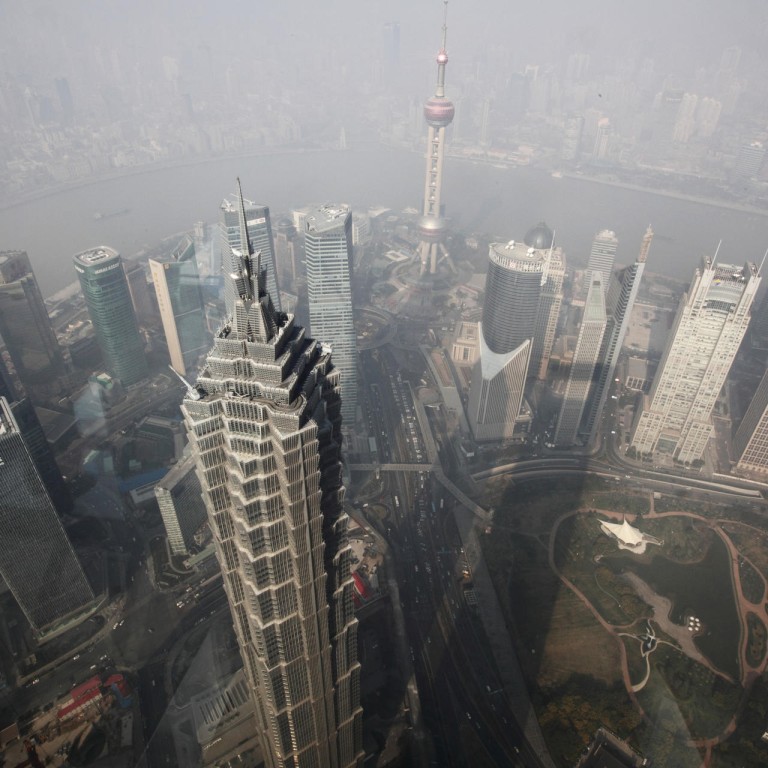
It's Shanghai or burst
Most stocks touched by the city's name are turning to gold but analysts are warning of a potential bubble that will inevitably pop
'Zhang Guangdi has watched the market value of his Shanghai International Port Group shares jump 130 per cent since August 22, when the mainland's commerce ministry said the government approved a free-trade zone in Shanghai.

"The stock isn't cheap," Zhang said as he monitored price moves with about 50 other traders at a Shanghai Securities outlet in the city's financial district last week.
Shares with the word Shanghai in their names, including those linked to the free-trade zone, led gains in Chinese equities since August 22 amid record volumes. The companies have added US$45 billion of market value, more than Vietnam's entire stock market, in a 27 per cent rally that's almost five times bigger than the 5.7 per cent gain for the benchmark index. Shanghai Dragon Corp, a maker of underwear and suits, and Shanghai Haibo, a taxi company, jumped at least 28 per cent.
While Barclays predicts the free-trade zone will help turn Shanghai into a global hub for finance and shipping, Bank Julius Baer says the rally is unjustified because the government has not announced details and any boost to profits may take years to materialise. The surge spurred at least five companies, including Shanghai Port and Shanghai Zhenhua Heavy Industries, to tell the exchange they had no explanation for the gains.
Andy Xie, the former World Bank economist who warned of a bubble in mainland Chinese stocks in 2007 before the Shanghai Composite plunged a record 65 per cent the following year, says the rally in free-trade stocks is another speculative mania.
"These concept stocks are of course a bubble," Xie said. "The free-trade zone will take a long time to develop and earnings will show only years down the road."\
These are of course a bubble. The [FTZ] will take a long time to develop
Gains in companies linked to the free-trade zone have fuelled the benchmark index's rebound from a four-year low in June as economic data showed better-than-anticipated growth in exports, industrial production and retail sales.

While a draft plan shows the free-trade zone may liberalise 19 industries from banking to shipping and allow freer convertibility of the yuan, the government has not published details of what the area will offer or when the policies will be implemented.
"We are not recommending stocks on the free-trade zone because we are not sure what kind of benefits they will get," said Kelvin Wong, an analyst at Bank Julius Baer in Hong Kong.
While equities linked to the free-trade zone may face a "correction", they will probably rally for several years before large investors dump the shares, said Zhu Yaomin, a 57-year-old retiree who has been investing in shares for two decades.
"I am not worried that these stocks have bubbles," said Zhu, puffing on a Double Happiness-brand cigarette and wearing plastic slippers in a room reserved for investors with at least two million yuan of assets at Changjiang Securities in eastern Shanghai. "It's not exaggerating to say that such an investment theme can carry on for, say, three years."
Meanwhile, Shanghai's free-trade zone may compete with similar areas in Tianjin, a port city southeast of Beijing, and Guangdong province, which is studying a plan to set up a regional free-trade zone with Hong Kong and Macau.
